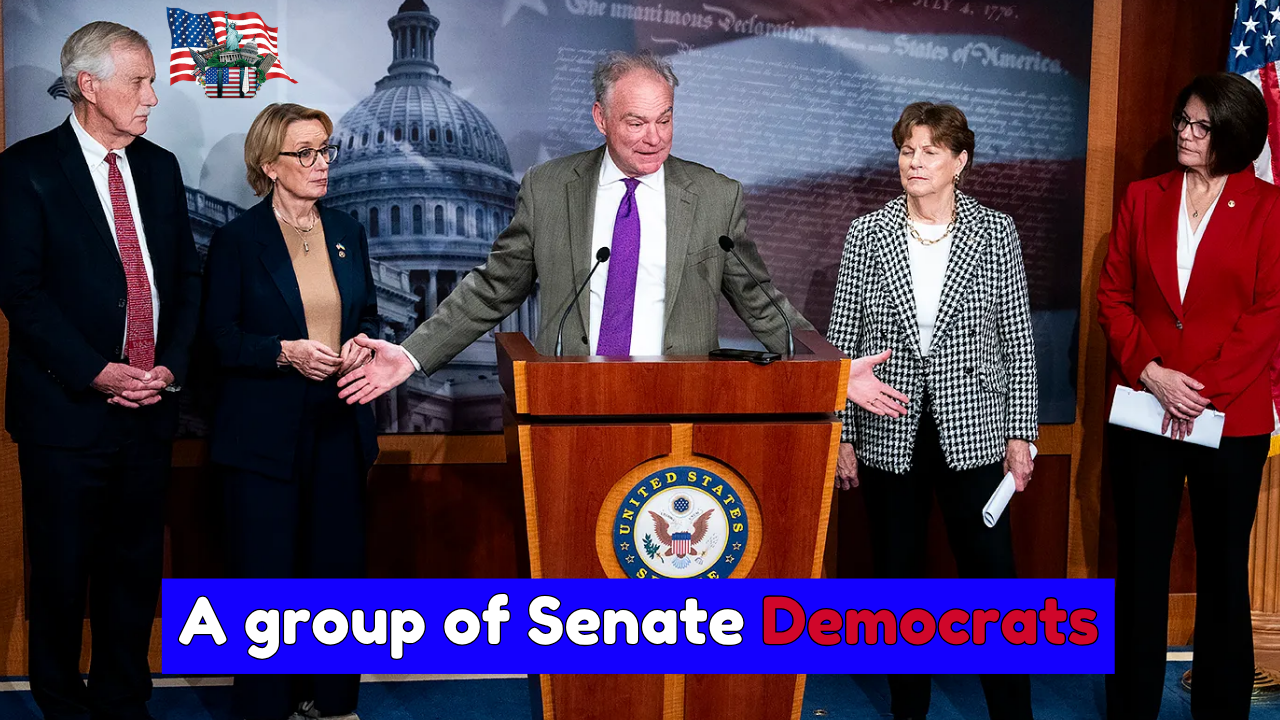After a prolonged shutdown that strained public services and federal paychecks, a group of Democrats and one Democratic-aligned independent moved to end the impasse. Their leverage point was a guaranteed vote on Affordable Care Act premium tax credits, the health care issue at the center of the standoff. Supporters framed the deal as the best attainable option in the face of continued Republican resistance to earlier proposals, while opponents argued it conceded too much on health care protections.
This explainer outlines who voted for the agreement, why they did so, what concerns remain, and how the plan affects federal workers, families purchasing insurance on the exchanges, and the broader political landscape.
Why These Democrats and an Independent Supported the Deal

Sen. Dick Durbin of Illinois
A veteran party leader nearing retirement, Durbin separated from the caucus position to support the agreement. He emphasized reducing harm caused by days of halted pay for federal employees and the ripple effects on safety critical functions such as air traffic control. He called the bill imperfect but described it as a necessary step to stop the damage from continuing.
Sen. Angus King of Maine
An independent who caucuses with Democrats, King is known for bipartisan bargaining. He supported the deal on pragmatic grounds, noting that each passing day of shutdown inflicted new harm while prospects for a broader health policy breakthrough were not improving. The guaranteed vote on ACA subsidies gave him a concrete path forward while ending immediate disruption.
Sen. Tim Kaine of Virginia
Representing a state with a large federal workforce, Kaine underscored two priorities. First, a path to extend Affordable Care Act premium tax credits. Second, protections for federal employees, including back pay, reinstatement for those wrongfully terminated during the shutdown, and safeguards against baseless removals. He framed the package as a balance of health care progress and worker security.
Sen. John Fetterman of Pennsylvania
Fetterman supported moving on from the stalemate, arguing that the shutdown had run its course and produced only chaos. He cautioned Democrats against overplaying their hand and favored action that would reopen government swiftly while preserving a route to address health care affordability.
Sen. Jeanne Shaheen of New Hampshire
Shaheen, who has said she will not seek reelection in twenty twenty six, called for ending the pain families were experiencing. As a long time lead sponsor of legislation to extend premium credits, she stressed that weeks of talks showed Republicans were not going to resolve health care within shutdown negotiations, making the compromise the most viable route.
Sen. Maggie Hassan of New Hampshire
Hassan pointed to constituent concerns on both fronts. Families feared spikes in health care costs and also faced the shutdown’s economic strain. She cast the agreement as opening space for serious bipartisan talks over the next month to extend expiring ACA tax credits.
Sen. Catherine Cortez Masto of Nevada
Cortez Masto cited visible community hardship, mentioning food bank lines and the strain on seniors, children, and working families. She said reopening the government would stop immediate harm while keeping the fight alive to address the looming health care issue.
Sen. Jacky Rosen of Nevada
Rosen echoed her colleague from Nevada, warning that the shutdown was inflicting serious damage by slowing air travel and withholding essential benefits like SNAP. She supported reopening government now while continuing to push on health care affordability.
Short Summary
Item |
Details |
|---|---|
Core Outcome |
Agreement to reopen the government with a guaranteed vote on Affordable Care Act premium subsidies |
Key Supporters |
Dick Durbin, Angus King, Tim Kaine, John Fetterman, Jeanne Shaheen, Maggie Hassan, Catherine Cortez Masto, Jacky Rosen |
Common Rationale |
End harm to federal workers and the public, secure a path to vote on ACA subsidies, limit further disruption |
Main Objection |
Progressive critics argue the deal concedes too much on health care affordability and Medicaid coverage |
Federal Workforce Impact |
Restores pay, reinstates wrongfully terminated workers under the shutdown, protects against baseless firings as described by supporters |
Political Profile |
Several supporters are former governors and none are on the ballot in the next midterm cycle |
Official Site Link |
What Supporters Say the Deal Achieves
Supporters argue the agreement does three main things. First, it reopens government and restores normal operations, which stabilizes air travel, federal service delivery, and contractor work. Second, it guarantees a vote on extending Affordable Care Act premium tax credits, a policy designed to prevent sudden premium spikes for people who buy coverage in the individual market. Third, it provides protections for federal workers such as back pay and steps to reinstate those wrongfully terminated during the shutdown, according to backers.
They frame this as the most realistic path to both immediate relief and a fair up or down vote on the central health care question that fueled the impasse.
What Opponents Are Saying
Progressive critics within the Democratic caucus counter that the deal gives away leverage. Sen. Bernie Sanders argued that accepting the agreement would result in higher health insurance premiums for millions, jeopardize Medicaid coverage for many, and worsen health outcomes. Rep. Ruben Gallego voiced a firm no, grounding his opposition in the principle that health is foundational and should not be traded away in budget brinkmanship.
Opponents believe Democrats could have pushed for stronger protections inside the funding bill itself instead of settling for a separate vote that might still fail or be delayed.
Impact on Federal Workers and Services
Ending the shutdown means paychecks resume and agencies can restart essential services. Supporters point to provisions that protect workers from baseless terminations related to the shutdown period and to back pay that compensates for lost wages. The move is also intended to restore stability at airports, national parks, and other public facing functions that were strained or shuttered.
Contractors and small businesses that rely on federal operations may see gradual normalization as agencies process backlogs and resume procurement. Families that depend on federal benefits and public services should experience fewer disruptions as systems come back online.
What Happens Next on Health Care
The central policy pledge is a time bounded vote on extending Affordable Care Act premium tax credits. Without action, many households that buy exchange plans could face higher premiums when temporary enhancements expire. Supporters of the deal say the next month should be used for bipartisan negotiations to preserve or extend the credits. Opponents warn that separating the vote from must pass funding reduces leverage, making the outcome uncertain.
Either way, the coming weeks are critical for households who rely on subsidized coverage and for insurers setting rates based on the policy environment.
Political Context
Several yes votes came from senators with executive experience as former governors. None of the highlighted supporters faces a reelection campaign in the next midterms, which can reduce short term electoral pressure and allow for a focus on governance outcomes. The debate illustrates a familiar tension inside the Democratic coalition between pragmatic steps to end immediate harm and maximalist pushes for broader health policy gains.
Key Takeaways
- The government reopens while securing a guaranteed vote on ACA premium tax credits.
- Supporters emphasize stopping ongoing harm to workers and the public.
- Opponents argue the deal surrenders leverage on health care affordability and coverage.
- The next month will determine whether the premium credits are extended and how families’ costs are affected.
Frequently Asked Questions
1) What exactly did supporters gain on health care?
They secured a firm vote on extending Affordable Care Act premium tax credits, which help lower monthly premiums for people buying insurance on the individual market.
2) Why move ahead without winning everything now?
Backers say continued shutdown pressure was hurting families and federal services. They view this agreement as the best achievable outcome that both ends the harm and guarantees a health care vote.
3) What protections exist for federal workers under this plan?
Supporters highlight back pay for missed work, reinstatement for workers wrongfully terminated during the shutdown, and safeguards against baseless removals connected to the stoppage.
4) Why are some Democrats still opposed?
Opponents argue the party gave up too much leverage on health care, risking higher premiums and reduced coverage if the follow-on vote fails or is weakened in negotiations.
5) Where can I track the upcoming vote and bill text?
You can follow official schedules, amendments, and vote tallies on the United States Congress website at www.congress.gov.
For More Information Click HERE











